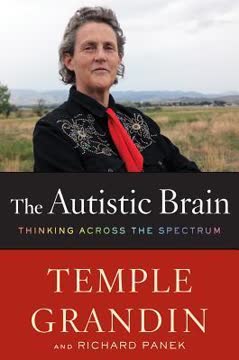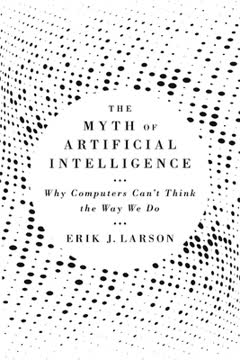Key Takeaways
1. Asperger's diagnosis brings clarity and hope to a struggling marriage
"This explains so much," we kept saying.
Understanding the root cause. David Finch's Asperger's diagnosis at age 30 provided a framework for understanding the challenges in his marriage. The revelation explained his difficulties with social interactions, empathy, and flexibility. It allowed his wife Kristen to see his behaviors not as intentional slights, but as symptoms of a neurological condition.
A catalyst for change. The diagnosis became a turning point, motivating David to actively work on improving himself and his relationship. It sparked a journey of self-discovery and personal growth, as he began to identify and address the specific ways his Asperger's affected his marriage. This newfound awareness and commitment to change brought hope to a relationship that had been on the brink of collapse.
2. Communication is key: Use your words and learn to listen
"Use your words."
Express yourself clearly. For individuals with Asperger's, like David, learning to communicate effectively is crucial. This involves articulating thoughts and feelings, even when it feels uncomfortable or unnecessary. By "using your words," you can bridge the gap between your internal world and your partner's understanding.
Active listening skills. Equally important is developing the ability to listen attentively to your partner. This means:
- Focusing on what they're saying without interrupting
- Asking clarifying questions
- Acknowledging their feelings
- Avoiding the urge to immediately offer solutions
By improving both expression and reception in communication, couples can significantly reduce misunderstandings and strengthen their connection.
3. Get inside her world and find common ground
"If you could stop looking at what it was supposed to be and start looking at what it actually is, then you might see that."
Embrace her interests. David learned to appreciate and participate in activities that mattered to Kristen, even if they didn't initially appeal to him. This involved:
- Watching her favorite TV shows
- Engaging in conversations about topics she enjoyed
- Making an effort to understand her perspective on various issues
Create shared experiences. Finding and cultivating common interests became a way to strengthen their bond. This might involve:
- Trying new activities together
- Developing inside jokes and shared references
- Creating rituals or traditions unique to their relationship
By making a conscious effort to enter his wife's world and find points of connection, David was able to rebuild the sense of companionship that had been lost in their marriage.
4. Empathy can be learned through active listening and perspective-taking
"Mmm-hmm. I totally hear you."
Practice active empathy. While natural empathy might be challenging for those with Asperger's, it can be cultivated through deliberate practice. This involves:
- Recognizing emotional cues in others
- Imagining how they might be feeling
- Responding with appropriate words or actions
Seek to understand, not solve. David learned that often, his wife simply needed him to listen and validate her feelings, rather than offer solutions. This shift in approach involved:
- Asking questions to better understand her perspective
- Acknowledging her emotions without judgment
- Resisting the urge to immediately "fix" the situation
By consistently working on these skills, David was able to improve his ability to connect emotionally with his wife and others, enhancing his relationships and overall social interactions.
5. Redefine household responsibilities and perfect imperfection
"Laundry: Better to fold and put away than to take only what you need from the dryer."
Share the load. David realized that his expectations of traditional gender roles in household management were outdated and unfair. He learned to take initiative in household tasks, such as:
- Folding and putting away laundry
- Cleaning the kitchen
- Helping with childcare responsibilities
Embrace imperfection. Letting go of rigid standards for household management allowed both partners to feel more relaxed and appreciated. This involved:
- Accepting that things won't always be done "perfectly"
- Focusing on effort and intention rather than results
- Celebrating small improvements and shared responsibilities
By redefining their approach to household management, David and Kristen were able to create a more balanced and harmonious home life.
6. Be present in moments with your children
"If you're wondering what it is you should be extracting from your moments with them, it's joy. Period."
Engage fully. David learned the importance of being mentally and emotionally present during time with his children. This meant:
- Putting aside distractions like phones or work thoughts
- Actively participating in play and conversation
- Observing and appreciating their unique personalities and interests
Focus on connection, not perfection. Rather than trying to create "perfect" parenting moments, David found joy in simply being with his children. This involved:
- Letting go of expectations for how activities "should" go
- Embracing spontaneity and silliness
- Recognizing that small, everyday moments can be meaningful
By shifting his focus to genuine engagement and joy, David was able to strengthen his bond with his children and find more fulfillment in fatherhood.
7. Develop coping strategies for social situations and parties
"Parties are supposed to be fun."
Prepare and plan. For those with Asperger's, social situations can be overwhelming. David developed strategies to make them more manageable:
- Researching topics of conversation in advance
- Setting realistic expectations for duration and interaction
- Identifying a "safe person" or quiet space for breaks
Focus on individual connections. Rather than trying to navigate large group interactions, David found success in:
- Seeking out one-on-one conversations
- Asking questions about others' interests and experiences
- Sharing his own passions in a relatable way
By developing these coping strategies, David was able to participate more comfortably in social situations, reducing stress for both himself and his wife.
8. Take notes and track progress to become a better partner
"Taking notes allowed me to slow down the discussion, to understand her points."
Journal for clarity. David found that writing down his thoughts, observations, and goals helped him process information and track his progress. This involved:
- Keeping a "Journal of Best Practices" for self-improvement
- Taking notes during important conversations with his wife
- Reviewing and reflecting on his notes regularly
Set and review goals. By treating his personal growth like a work project, David was able to:
- Identify specific areas for improvement
- Break down larger goals into manageable steps
- Celebrate successes and adjust strategies as needed
This systematic approach to self-improvement allowed David to make consistent progress in becoming a better partner and father, ultimately strengthening his marriage and family life.
Last updated:
FAQ
What's The Journal of Best Practices about?
- Personal Journey: The memoir by David Finch explores his life as a husband with Asperger syndrome, focusing on his efforts to improve his marriage with Kristen.
- Humor and Insight: Finch uses humor to share his challenges in social interactions and domestic life, making the narrative both entertaining and insightful.
- Focus on Relationships: The book emphasizes communication and empathy in relationships, especially within a neurodiverse marriage.
Why should I read The Journal of Best Practices?
- Unique Perspective: It offers a rare insight into living with Asperger syndrome and its impact on relationships.
- Relatable Themes: Themes of love, communication, and marriage struggles are universal, making it relatable to many readers.
- Inspiration for Change: Finch’s journey serves as an inspiration for personal growth and enhancing relationships.
What are the key takeaways of The Journal of Best Practices?
- Importance of Communication: Effective communication is crucial, especially when dealing with Asperger syndrome.
- Empathy Development: The book emphasizes that empathy can be learned and improved over time.
- Practical Advice: Finch shares actionable "best practices" for improving relationships, such as "Use your words" and "Be her friend, first and always."
What are the best quotes from The Journal of Best Practices and what do they mean?
- “Don’t change the radio station when she’s singing along.”: Highlights the importance of being considerate in a relationship.
- “Sometimes, she just needs you to listen.”: Emphasizes the necessity of active listening in relationships.
- “Be her friend, first and always.”: Suggests that a strong friendship is foundational in a romantic relationship.
How does David Finch describe his experience with Asperger syndrome in The Journal of Best Practices?
- Self-Discovery: His diagnosis was eye-opening, helping him understand his behaviors and their effects on his marriage.
- Social Challenges: Finch shares his difficulties in social situations, including misunderstandings and emotional expression struggles.
- Journey of Improvement: The narrative focuses on growth through self-reflection and practical strategies.
What methods does David Finch use to improve his marriage in The Journal of Best Practices?
- Journal of Best Practices: Finch records insights and strategies for being a better husband, guiding his self-improvement.
- Performance Reviews: He humorously conducts self-assessments to evaluate progress and identify improvement areas.
- Communication Techniques: Finch learns to communicate more effectively, using direct language and openness about his feelings.
How does Finch’s relationship with his wife, Kristen, evolve throughout The Journal of Best Practices?
- Initial Struggles: The memoir starts with significant marital challenges due to his undiagnosed Asperger syndrome.
- Growth and Understanding: As Finch learns about his condition, both he and Kristen gain a deeper understanding of each other.
- Strengthened Bond: By the end, their relationship is stronger, characterized by mutual support and understanding.
What role does humor play in The Journal of Best Practices?
- Coping Mechanism: Finch uses humor to manage the challenges of living with Asperger syndrome.
- Engaging Narrative: Humorous anecdotes make the memoir engaging and relatable.
- Perspective Shift: Humor makes serious topics more approachable and less daunting.
How does Finch address the concept of empathy in The Journal of Best Practices?
- Empathy Deficit: Finch acknowledges his struggles with empathy due to Asperger syndrome.
- Learning Empathy: He emphasizes that empathy can be developed through practice and understanding.
- Practical Strategies: Finch shares strategies for enhancing empathy, such as active listening.
What specific methods does Finch use to improve his communication with Kristen?
- Active Listening: Finch learns to fully engage with Kristen’s words without interrupting.
- Taking Notes: He takes notes during conversations to process information and remember key points.
- Regular Check-Ins: Establishes regular discussions to foster open communication and address relationship areas needing improvement.
How does Finch's relationship with his children evolve throughout The Journal of Best Practices?
- Initial Disconnection: Finch initially feels detached from his children, viewing them as chores.
- Learning to Engage: He learns to be present and actively participate in his children's lives.
- Building Stronger Bonds: By the end, Finch’s relationship with his children deepens significantly.
What challenges does Finch face in his marriage due to Asperger syndrome?
- Emotional Regulation: Finch struggles with managing emotions, leading to misunderstandings with Kristen.
- Social Interactions: He finds it difficult to navigate social dynamics, creating tension in group settings.
- Communication Barriers: Challenges with empathy hinder effective communication, causing frustration in their relationship.
Review Summary
The Journal of Best Practices is a humorous and insightful memoir about David Finch's journey after being diagnosed with Asperger's Syndrome. Readers appreciate Finch's honesty, self-awareness, and dedication to improving his marriage. The book offers a unique perspective on living with Asperger's and its impact on relationships. While some found parts repetitive or uncomfortable, most praised Finch's writing style and humor. Many readers related to the challenges described and found the book both entertaining and informative, recommending it for those interested in understanding Asperger's Syndrome and relationships.
Similar Books






Download PDF
Download EPUB
.epub digital book format is ideal for reading ebooks on phones, tablets, and e-readers.




